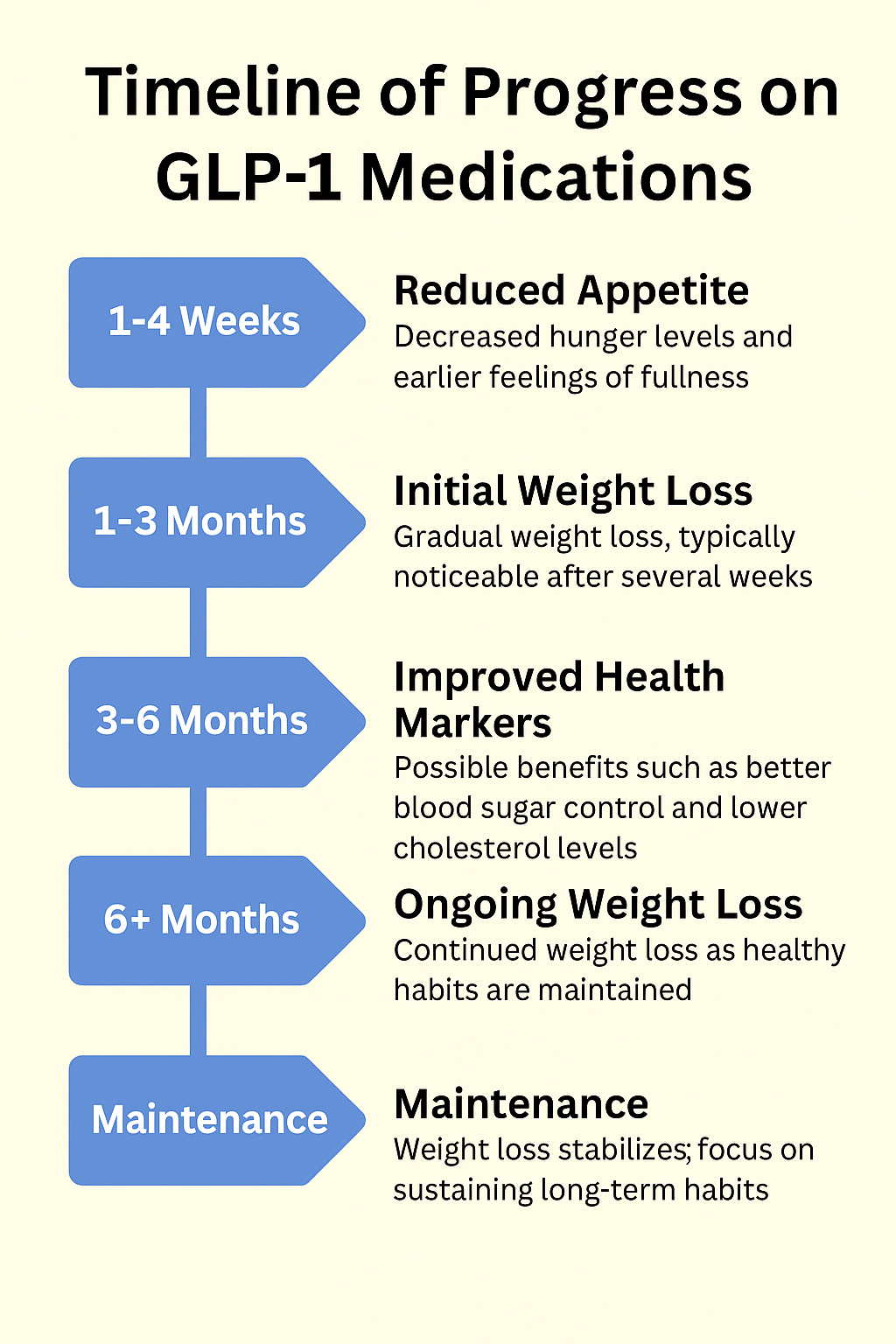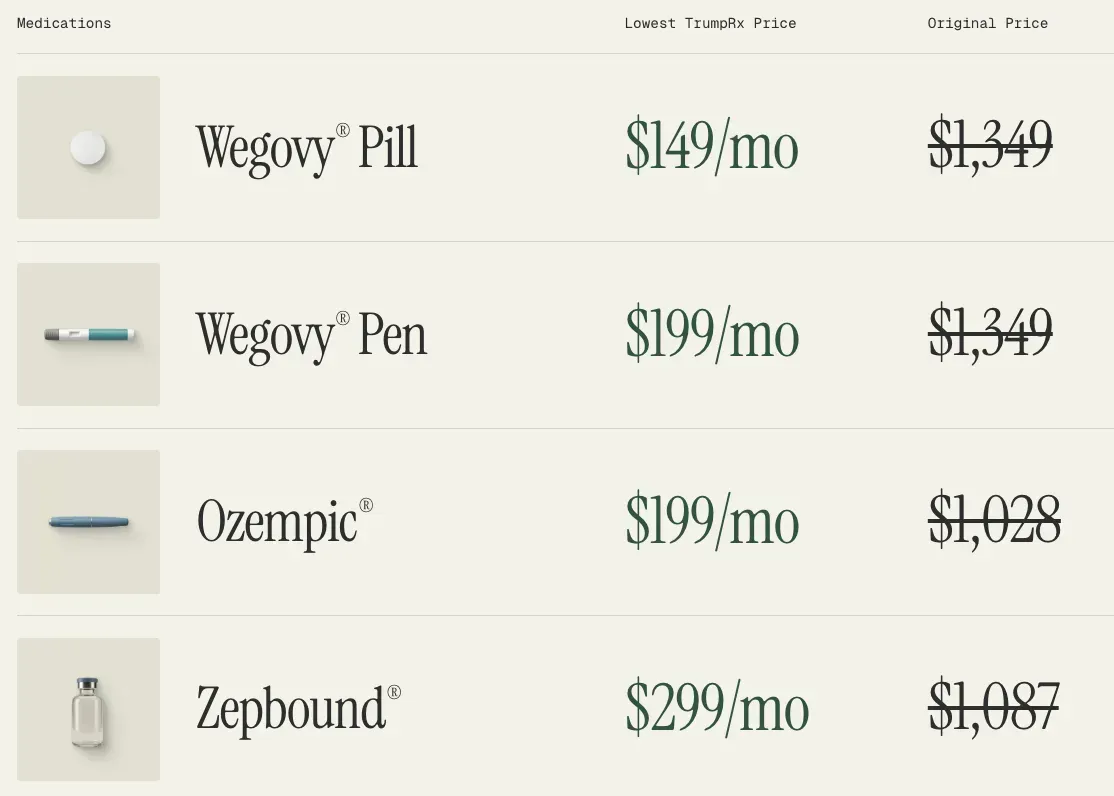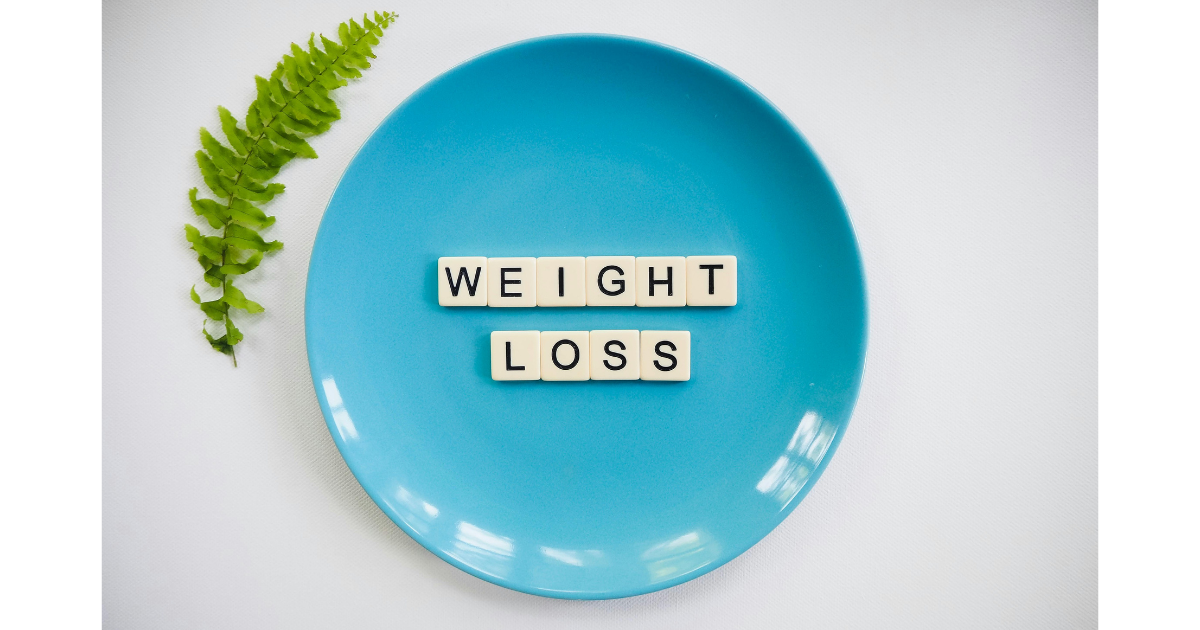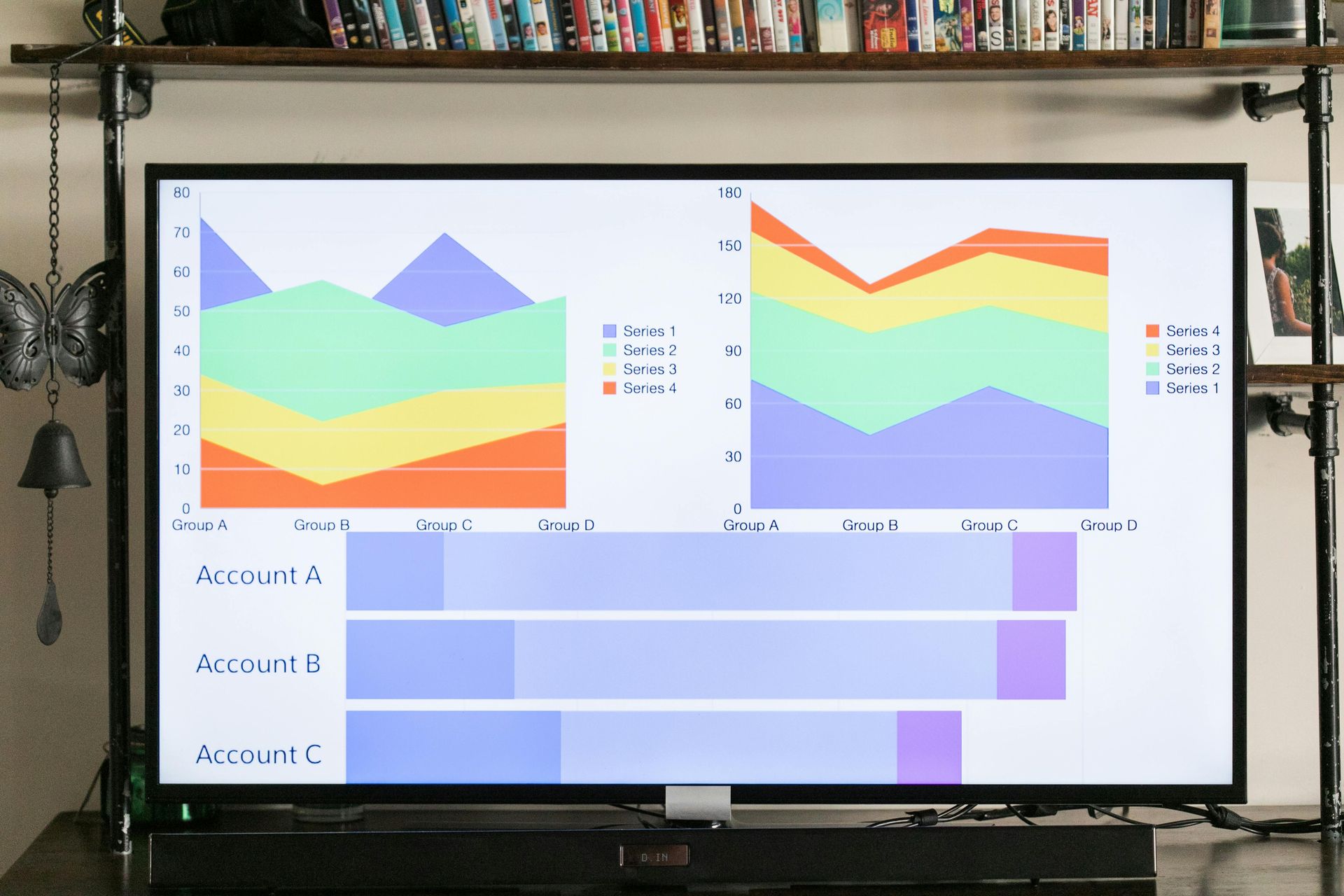Timeline of Progress on GLP-1 Medications
GLP-1 medications like semaglutide and tirzepatide can significantly change how your body responds to food—but they don’t work overnight. If you’ve just started treatment or are thinking about it, you might be wondering what kind of progress to expect and when.
Here’s a realistic timeline of what many patients experience in the first six months, and how to know if you’re on the right track.
Week 1 to 2: Early Adjustment
Most patients begin on a low dose to allow their body time to adjust and reduce the risk of side effects. During this early phase, dramatic changes are unlikely, and some people feel no effect at all yet.
Still, a few signs may emerge: a slightly reduced appetite, less interest in snacks, or a sense of fullness that lasts longer after meals.
What to expect:
- Minimal (or no) weight loss
- Possible mild nausea or fatigue
- Early shifts in portion size or snacking
Weeks 3 to 6: Appetite Starts to Shift
As your dose gradually increases, the appetite-suppressing effects become more noticeable. Most patients begin to eat smaller portions and may feel full after just a few bites. Many describe “forgetting to snack” or losing interest in mindless eating.
For some, this is when the scale starts to move. Others may not see measurable weight loss yet but are still making quiet progress by building new habits.
What to expect:
- Appetite reduction becomes clearer
- Weight loss may begin (often 2–5 lbs by week 6)
- Fewer cravings, especially for processed carbs or late-night snacks
Weeks 6 to 12: Meaningful Changes Add Up
This is when the medication often reaches a therapeutic dose, and progress becomes more visible. Most patients lose weight steadily, often between 1 and 2 pounds per week. Clothing may start to fit differently. Energy and focus may improve as eating becomes more consistent and less compulsive.
The early side effects—if any—usually fade by this stage, especially with adequate hydration, protein, and rest.
What to expect:
- Noticeable weight loss (5–15+ lbs for many)
- Fewer food-related mood swings
- Better portion control and meal regularity
- A stronger sense of control over eating
Months 3 to 6: Plateaus, Refinements, and Fat Loss
As weight drops, your body’s calorie requirements decrease. Some patients experience a plateau, even though their habits haven’t changed. This doesn’t mean the medication has stopped working—it just means you’ve reached a new baseline.
Now’s the time to fine-tune protein intake, hydration, and activity levels. If needed, your provider may adjust the dose or review your plan.
By month 6, many patients have lost 10% or more of their starting body weight, which is considered a meaningful clinical improvement in obesity treatment.
What to expect:
- Slower but steady progress
- More visible fat loss
- Possible need for dose or habit adjustment
- New mental and emotional patterns around food
Long-Term Outlook
GLP-1 medications are not a 90-day plan. They’re a long-term tool for managing a chronic condition. Some patients stay on them for maintenance. Others taper off with support. The key is sustained change, not rapid transformation.
At our clinic, we help you understand what your body is telling you—at every stage.
What If You’re Not Seeing Progress?
Not everyone responds at the same pace. Progress can stall for many reasons: incorrect dosing, inconsistent use, poor nutrition, inadequate sleep, or even unmanaged stress. That’s why follow-up care matters.
Our clinic is directed by Dr. Tran Le, a board-certified obesity medicine physician. We prescribe both name-brand and compounded GLP-1 medications. If compounded medications are appropriate and medically necessary, we will prescribe them, and they may be less expensive than name-brand medications. Treatment is provided entirely online, and medication is delivered directly to your home.
We stay with you through every phase of your journey—not just the beginning.
Your Next Step
Your body doesn’t change all at once. But with the right medication, support, and follow-through, it can change in meaningful, lasting ways. Click here if you want to get started today!
This post is not medical advice. Please consult a doctor before making any healthcare decisions.















